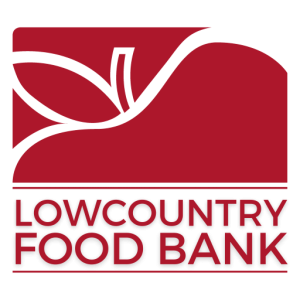Lowcountry Food Bank Partners with Summer Food Service Program
June 8, 2023Kids and teens can access summer meals at multiple locations
Lowcountry Food Bank (LCFB) is participating in the Summer Food Service Program in 2023. Nutritious food will be provided to children 18 years old and younger without charge. Acceptance and participation requirements for the program, and all activities, are the same for all regardless of race, color, national origin, sex, age or disability, and there will be no discrimination in the course of food service.
Tentative dates for program operation are June 12th – August 11th. The food distribution sites are chosen based on their accessibility, where food service gaps exist, and capacity to serve children who may need meals most. The sites include day camps, parks and recreation centers, public libraries, and faith-based organizations. Meal sites, service dates, and service times are listed at the end of this document. The meal site information is subject to change. Free summer meals can also be located using No Kid Hungry’s texting tool. Simply text the word “FOOD” or “COMIDA” to 304-304 to find a nearby meal site.
This program serves children who face hunger during the summer when school meals may not be available. During the school year, the National Breakfast and School Lunch Programs play a pivotal role in fighting childhood hunger.
The food insecurity rate remains high at 9.6% in the 10 coastal counties of South Carolina the LCFB serves. This is equivalent to 144,740 of our neighbors, of whom 42,850 are children. LCFB strategically works to ensure that every neighbor who may be experiencing food insecurity has equitable access to healthy food.
The COVID-19 pandemic and economic inflation have disproportionately affected communities already facing momentous challenges of underemployment, low income, a lack of transportation, and access to grocery stores. LCFB continues to innovate, not only focusing on the food we distribute, but also on deepening our understanding and responses to the root causes of hunger, food insecurity, and how these issues can best be addressed in the varying and unique communities we serve.
LCFB prepares summer meals in the Zucker Family Production Kitchen in Charleston, which meets all current USDA guidelines. The program ensures children have access to nutritious food, including fresh produce, throughout the summer.
This program enables the Lowcountry Food Bank to provide year-round hunger relief to children throughout our community. During the school year, the Lowcountry Food Bank partners with public schools to provide essential meals to children and their families through the BackPack Buddies, Kids Café, School Pantry and School Market programs. Families are also able to receive food assistance at faith-based and non-profit organizations that partner with Lowcountry Food Bank. However, additional food resources are needed during the summer when school meals may not be available, and this summer program fulfills this need with eight weeks of food service beginning in mid-June through mid-August.
About the Lowcountry Food Bank: Feed. Advocate. Empower.
The Lowcountry Food Bank serves the 10 coastal counties of South Carolina and distributed more than 40 million pounds of food in 2022. The Lowcountry Food Bank helps fight hunger by distributing food to more than 230 partner agencies including on-site meal programs, homeless shelters and emergency food pantries. The Lowcountry Food Bank advocates on behalf of those who experience hunger and helps empower people to make healthy and nutritious food choices. For more information, go to the Lowcountry Food Bank website at lowcountryfoodbank.org.
In accordance with Federal civil rights law and U.S. Department of Agriculture (USDA) civil rights regulations and policies, the USDA, its Agencies, offices, and employees, and institutions participating in or administering USDA programs are prohibited from discriminating based on race, color, national origin, sex, disability, age, or reprisal or retaliation for prior civil rights activity in any program or activity conducted or funded by USDA.
Persons with disabilities who require alternative means of communication for program information (e.g. Braille, large print, audiotape, American Sign Language, etc.) should contact the Agency (State or local) where they applied for benefits. Individuals who are deaf, hard of hearing or have speech disabilities may contact USDA through the Federal Relay Service at (800) 877-8339. Additionally, program information may be made available in languages other than English.
To file a program complaint of discrimination, complete the USDA Program Discrimination Complaint Form, (AD-3027) found online at: http://www.ascr.usda.gov/complaint_filing_cust.html, and at any USDA office, or write a letter addressed to USDA and provide in the letter all of the information requested in the form. To request a copy of the complaint form, call (866) 632-9992. Submit your completed form or letter to USDA by:
1. Mail: U.S. Department of Agriculture of the Assistant Secretary for Civil Rights, 1400 Independence Avenue, SW, Washington, DC 20250-9410;
2. Fax: (202) 690-7442; or
3. Email: [email protected]
This institution is an equal opportunity provider.



















